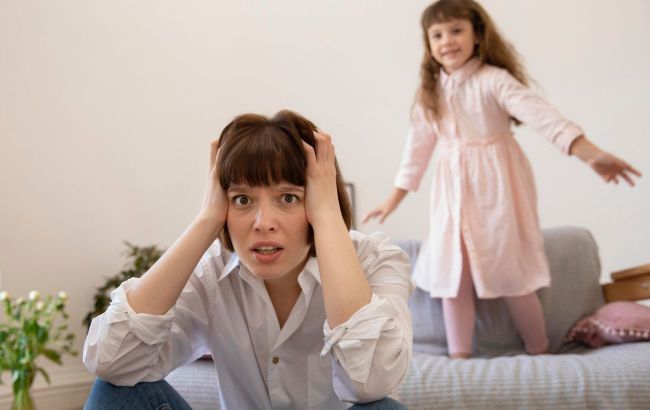Parental emotional burnout and how not to harm your children
 Illustrative photo (Freepik)
Illustrative photo (Freepik)
Psychologists emphasize that children are highly sensitive to their parents' mental and emotional states. Therefore, it’s essential to pay attention to your own mood and well-being to avoid negatively impacting your child. Also, children may act out more, cry, or appear down because they are around emotionally exhausted parents.
Below are tips on how to avoid harming your child when you're on the brink of emotional burnout, citing Nasha mama.
Mind can only take so much
Interactions between adults are horizontal; you may enjoy communicating with others but aren’t responsible for one another. With children, however, it's a vertical interaction because you're responsible for them. Emotional exhaustion can arise not only from external factors but also from internal ones within the family.
Several key factors can trigger emotional burnout:
Challenging family situations: Having children close in age, lacking support from other relatives, frequent child illnesses, financial struggles—all these problems stack up until the mind can no longer cope with the burden.
Life in a big city: Unfortunately, a metropolis is not conducive to maintaining horizontal relationships with friends that are vital for emotional well-being. Often, mothers find themselves isolated within four walls with children they are solely responsible for.
Lack of help: With no grandparents nearby, a husband always at work, and no money for a nanny, a mother may find herself socially disconnected. In such conditions, not only is there no time for self-care, but even basic tasks like going to the bathroom, taking a shower, or eating can become luxuries. Many families face these circumstances.
Why do children act out more?
One of the clearest signs of emotional exhaustion is that rest provides no relief. You sleep through the night but wake up feeling like you've been unloading freight cars. In the evening, you can’t fall asleep, and this cycle continues for days and weeks on end. Physical symptoms often serve as warning signs.
Imagine an energy reservoir. When it's full, you're lively, strong, and confident in your actions. If your child starts acting up, you can immediately find ways to calm or distract them. But when this reservoir is empty, and your children seem to act out even more, all you can feel is irritation and anger. This, in turn, affects the children, as emotionally exhausted parents may raise their voice, scold the child, or fail to control their negative emotions.
What to do with emotional burnout?
Rest and maintain social connections: Meet up with friends and colleagues, spend time in nature, and find opportunities to get proper rest and sleep.
Celebrate successes: If your child has been unwell and is now better thanks to your efforts, take a moment to acknowledge your achievement.
Find a hobby: Do something that brings you joy.
Prioritize quality sleep: Don’t ignore this step—good sleep is critical for emotional well-being.
Make small changes every day: Instead of relying on a yearly vacation without the kids, take small steps daily to add variety to your routine.
Stop chasing perfection: Those perfect moms you see online? They’re just an illusion. Everyone has good days and bad days, and everyone faces problems. Recognize this and keep this in mind.
Ask for help: Don’t be afraid to reach out when you need it, be it your friends, neighbors, relatives, or family members. Be upfront about your struggles and ask for support. Seek out groups of young parents or other mothers who understand and can encourage.

